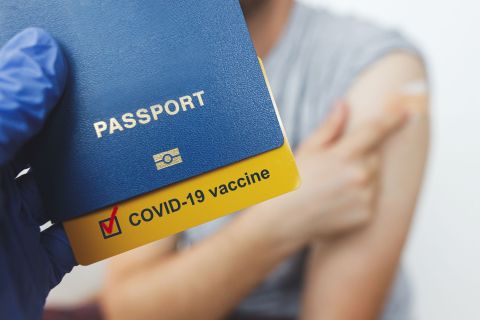Complying with the Newest Immigration Rules

The Biden Administration issued a Presidential Proclamation on October 25th, 2021, which will lift the travel bans currently restricting the direct entry of people from certain geographic areas into the United States. This proclamation will become effective on November 8th, 2021. When this proclamation takes effect, the U.S. will restrict entry into the country for noncitizen nonimmigrant travelers on the basis of vaccination status instead of banning entry for people from certain locations. These travelers will need to provide proof of being fully vaccinated before boarding an airplane.
To be considered fully vaccinated, the traveler will need to have had the final dose of an approved vaccine over 14 days before traveling. The approved vaccines are the Oxford-AstraZeneca/Covishield, Sinovac, Pfizer-BioNTech, Sinopharm, Johnson & Johnson, and Moderna. Mixed doses of any of these vaccines are acceptable, and the list of acceptable vaccines will probably be added to in the future. The US Centers for Disease Control (CDC) will also be implementing contact tracing protocols. Certain safety precautions will still be observed until mid-January, such as a negative COVID-19 test requirement before traveling as well as mask mandates for airports and airplanes.
There will be some exceptions to this policy, including but not limited to the following categories of noncitizen nonimmigrants:
- Some noncitizen nonimmigrants that are traveling for official government purposes, including their family,
- Children that are less than 18 years of age
- Sea crew members
- People that are participating in COVID-19 trials (The CDC will determine the criteria for this exception)
- Members of the United States Armed Forces
- People that have been given an exception for humanitarian or emergency reasons
- Individuals whose entry into the United States has been determined to be in the national interest
- Individuals who have not received the vaccine due to medical contraindications that have been determined by the CDC
- Individuals that have not obtained the vaccine due to a lack of availability in their country that are trying to enter the United States on a nonimmigrant visa except B-1/B-2.
Any traveler traveling to the United States that has not been vaccinated must show a negative COVID-19 test that has been taken within one day of traveling. Any United States citizen or green card holder must present a negative COVID-19 test that was taken within three days of traveling. Additionally, some travelers may need to self-quarantine or obtain a vaccination within 60 days of arriving in the United States. This policy will be in effect for 60 days and then may be renewed on a monthly basis.
The Department of Homeland security has announced that it will be lifting restrictions on land and ferry border crossings from Mexico and Canada. This will be done in two phases which will start on November 8th, 2021. Nonessential travel for fully vaccinated travelers will be allowed starting on November 8th. Essential travel will continue to be allowed even if the individual is not fully vaccinated. But, starting in January of 2022, everyone entering the U.S. by ferry or through the land border will need to be fully vaccinated.
Individuals who are seeking immigration status and are required to submit Form I-693 Report of Medical Examination and Vaccination Record must be fully vaccinated before a civil surgeon that has been appointed by the immigration service will complete Form I-693 and sign it. Waivers may be given in some cases, such as when:
- the vaccine is not typically available where the civil surgeon has a practice
- the vaccine is not appropriate due to the individual’s age
- there is a limited supply of the vaccine, which would cause there to be a significant delay in the applicant obtaining the vaccine
- The vaccine is contraindicated because of a medical condition
With the current state of immigration due to COVID-19 it is more confusing than ever for employers to handle the required documentation. However, one of the best tools to help is an electronic I-9 management system. This can help ensure that your organization is completing documentation accurately and consistently every time.